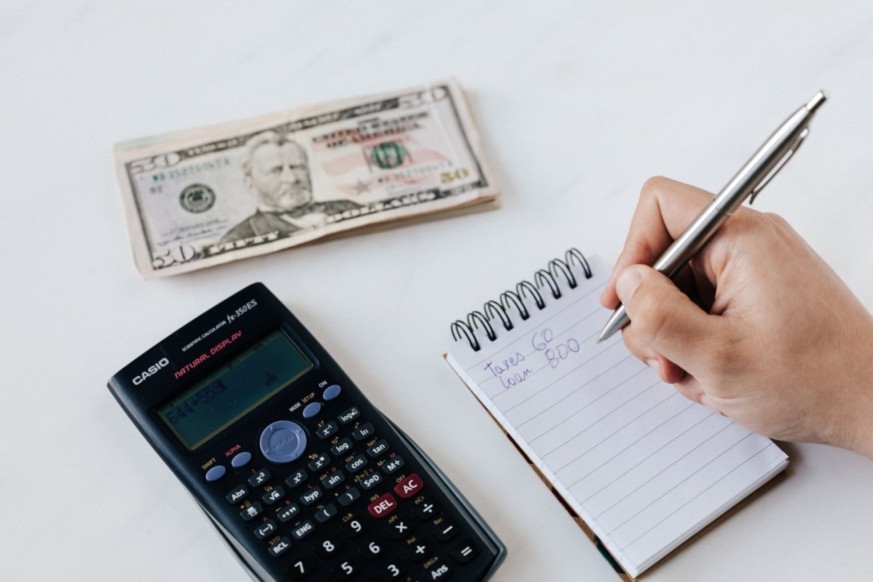We take some decisions and carry out actions regularly, either intentionally or unintentionally. These become habits over time. Some of these habits are bad for us financially, and before we know it, they have burrowed deep into our pockets and savings, preventing us from living life as we ought to.

Most times, people that become deep in debt start in small ways that could have been avoided if noted on time.
Whether your financial stance is already in the negative or not, recognizing and avoiding these habits can set you back on the trail to recovery, or prevent you from losses.
1. Taking Every Meal With a Drink
I have met some people that swear they cannot take their meal without a drink, whether fizzy or alcoholic. Every meal! If you indulge once in a while, it’s not an issue, but when you decide to do it all the time, your pocket will suffer for it, and your health too, which could lead to further spending on medications.
To avoid this, build the habit of taking your meals with just water or fruits. Quench the thirst for other drinks.
2. Working Without a Budget
A budget is an estimate of how much you make, and how much you spend within a specified period.
Working without a budget is an awful financial habit in the sense that you can not even track your income or your expenditure. You’re always at loss as to where all your money has gone when you might have spent it on frivolous things you didn’t plan for.
You have to, first of all, have a clear understanding of your income, from all your available sources, then you’ll take some time to track your spending, and cut off every unnecessary one.
After that, you’ll make plans to work towards goals you might have set to meet with your budget. From time to time, go back again to the drawing board to make sure you are not derailing, or if need be, assess your budget plan. The aim is to work with what works for you, not stifle yourself while at it.
3. There’s a ‘Buy Now, Pay Later’ Craze in Town.
Businesses all over are advertising that customers can acquire items like phones, electronic appliances, cars, and some other desirable items on credit. You get tempted to buy these things and in the long run, you find yourself still paying for an item you acquired a long time ago, and most often, the amount you are paying has gotten far higher than what they are worth.
This can become a bad habit if not watched and can prevent you from saving or buying some other necessary items.
4. Following Buy Trends
Avoid this by buying items you only need, and buying them with money you already have. Do not rope your future income into what it doesn’t even know about, and like we said in number 2, work with a budget.
Trends in fashion, devices, cars and other items will always come and go, but when you are tied to following every trend, you’ll lose focus and begin to acquire things you may eventually get tired of when the trend dies.
Sometimes you get bored after using these items a few times and then you put them away, because they are everywhere, especially things like clothes or hair, leading to waste.
The best way to avoid this is not to follow trends all the time.
If you must, buy only those things that will still be of value even after they finish trending. Look out only for durable, and lasting versions of the trends, as there are so many fake varieties when an item is trending.
5. Buying Things on Impulse
You go out to do your hair, or to fill your car tank, and all of a sudden, you see displayed items in shops and feel you must have them and go on to purchase them. That’s buying things on impulse! Do not become an impulsive buyer as it will drain your pocket and deprive you of needed funds when other pressing needs come up.
To avoid buying things on impulse, go shopping with a list and stick to your list unless the item ‘calling’ you is necessary, and you might have forgotten to put it on your list.
Refuse to yield to the temptation of spending on other unnecessary things when you go out. Stick to the plan, and work with your budget.
6. Not Having a Financial Goal
We save for two major reasons. The first is for emergencies, and the other is for investment.
When you do not save, and an emergency arises, you will find yourself running helter-skelter.
When you do not form the habit of saving, you realize you can not make any tangible investment, which will eventually lead to poverty in your later years.
To start saving, learn to pay yourself first from every income you make, that is, put away a percentage of all you get in the bank or other means of saving like Cowrywise. You can even save by putting it in simple places like a piggy bank, especially if you’re disciplined enough not to break it as soon as a need arises.
7. Making Unnecessary Purchases
Being addicted to anything eventually causes a loss of time and money too. Like being addicted to gaming, smoking, drinking, etc.
A break in these habits can help you to avoid bad financial habits, and also help you to save.
Conclusion
In conclusion, be intentional about breaking these financial habits if you indulge in them. Only engage in activities that can help you grow financially. Of course, you will be happier about it.


Leave a comment